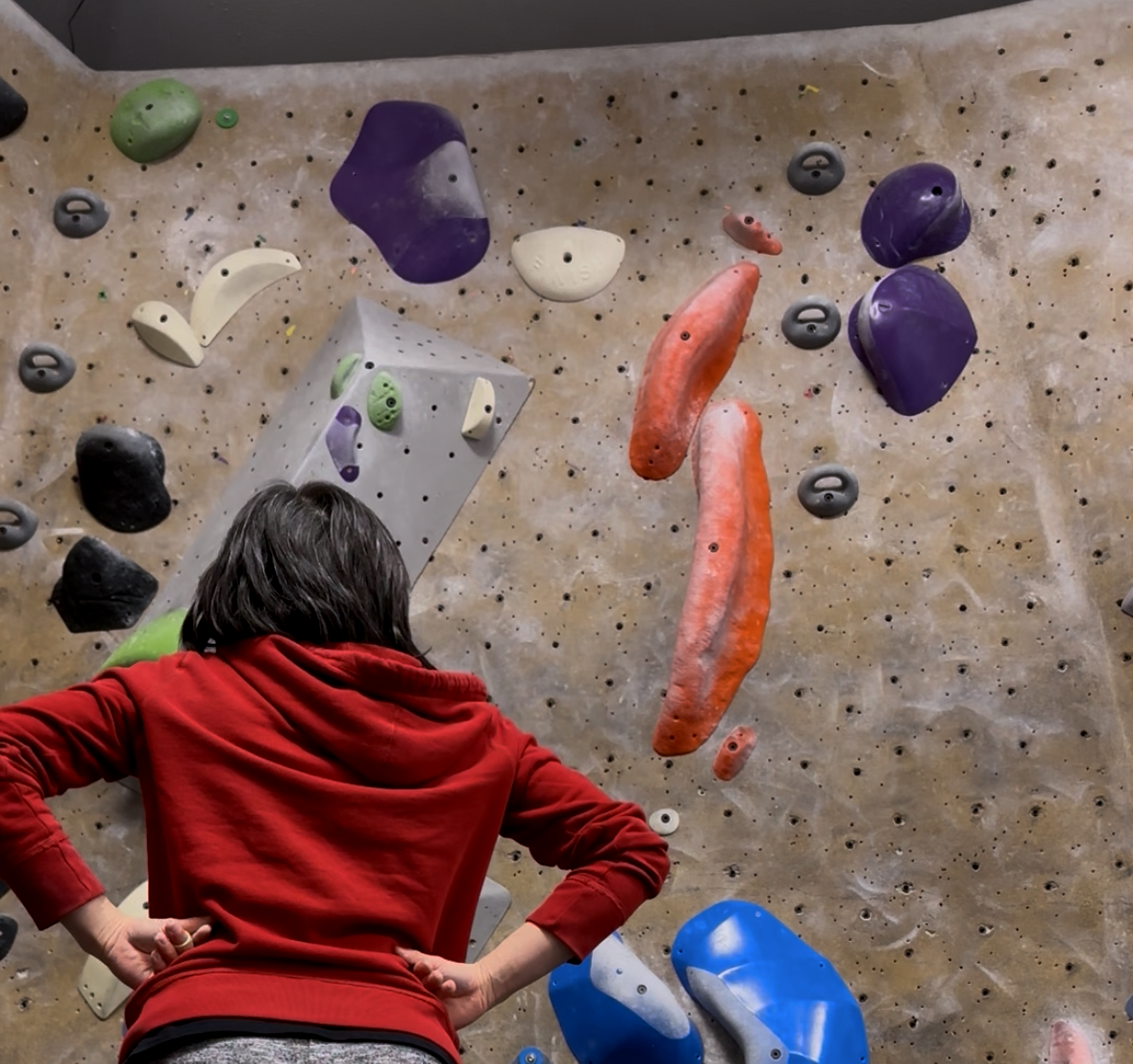How Distance Brought Clarity — Even In Climbing

How deloading gave me a better sense of what matters
I went on a deload for most of January. I needed time and space to rest my fingers and joints as they got progressively inflamed from my rapid climbing progress in the last few months.
At first, it felt off — like I was losing something. My finger joints loosened, and skin peeled off. My shoulders and back stopped feeling tight. I wasn’t waking up with any of the usual post-session signals that said, you worked hard. And I’ll admit, part of me wondered if I was regressing. Like progress would evaporate the moment I paused.
But a week in, something unexpected happened. Things quieted. Not in a “I don’t care anymore” way, more like the noise just dropped a few notches. The internal pressure to keep chasing new sets, flash everything, and stay “on it” — it softened.
This whole thing reminded me of the early days of infatuation, when you meet someone and get wrapped up in it. You check your phone a little too often, try to match their rhythm, and forget your own. Everything feels urgent. But eventually, some space creeps in, and with it, perspective. You still care — maybe even more — but now you’re able to see what’s real and what’s just the rush.
Climbing, like any passion, can run on that same kind of unchecked energy. And underneath it, there’s usually more going on than we realize.
Here’s what I noticed in myself:
1. Dopamine loops
Each new climb or send triggered small dopamine hits, not just from the success, but from the anticipation. That’s what made every new session feel important. It wasn’t just about performance; it was the feeling of chasing something. When I took a break, that cycle stopped. For a few days, it felt like something was missing. But then I realized: the craving wasn’t always tied to real meaning. Sometimes, it was just habit.
2. Novelty bias
New wall sets, new moves, new beta — novelty naturally grabs our attention. Our brains tend to treat it as high-value input. Even if I logically knew that rest would benefit me long-term, novelty kept tricking me into thinking that trying something new was more worthwhile right now, when it's hot. Deloading gave me space to re-center around what I cared about, instead of just reacting to what was in front of me. The rest let me feel the difference between urgency and importance.
3. Identity reinforcement
Over the past year, I’ve become someone who trains regularly, climbs with intention, and pushes hard. That identity feels good — it’s something I’ve earned. But with that comes a subtle trap: needing constant action to keep reinforcing that identity. If I wasn’t climbing, was I still “that person”?
Turns out, yes. The break reminded me that I don’t need daily reinforcement to stay grounded in who I am. I can rest and still be that climber. That’s probably the biggest shift.
Coming back after the deload, I felt refreshed. Not just physically, but mentally. I wasn’t chasing everything. I wasn’t afraid of missing out. I knew what I wanted to try, and I knew what I could let go of.
I don’t think I want to climb less — if anything, I want to climb more selectively. With a little more care in how I spend my effort. For example, I started looking into problems on board climbs, like Kilter, Tension Board, and spray wall. Board climbs don't cycle in and out like wall climbs do, allowing me to take my time choosing them to work on indefinitely. It's a good balance against the constant novelty of the wall climbs.
Deloading didn’t kill my momentum. It made space for a different kind of motion. One that isn’t frantic. One that doesn’t require me to prove anything every single day. Climbing isn’t going anywhere. My fire’s still lit. But now I know when to stoke it — and when to let it breathe.
Written with help from ChatGPT